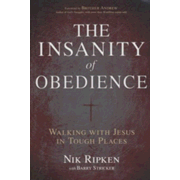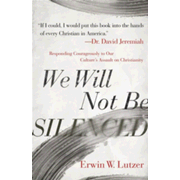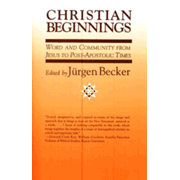FOR OUR STUDY on the Twenty-Second Sunday after Pentecost, many congregations focus on yet another reading in the Gospel According to Mark. We find in our text that after Jesus
had prophetically related for the third time that he was going to Jerusalem to
be killed, the disciples were still focused on his being politically “lifted up”. They
expected him to be ruler over Israel. Thus some followers yet maneuvered for advantage.
And
James and John, the sons of Zebedee, came forward to him, and said to him,
“Teacher, we want you to do for us whatever we ask of you.”
And he said to them, “What do you want me to
do for you?”
And they said to him, “Grant us to
sit, one at your right hand and one at your left, in your glory.”
But Jesus said to them, “You do not know what
you are asking. Are you able to drink the cup that I drink, or to be baptized
with the baptism with which I am baptized?”
And they said to him, “We are
able.”
And Jesus said to them, “The cup that I drink
you will drink; and with the baptism with which I am baptized, you will be
baptized; but to sit at my right hand or at my left is not mine to grant, but
it is for those for whom it has been prepared.”
And when the ten heard it,
they began to be indignant at James and John. And Jesus called them to him and
said to them, “You know that those who are supposed to rule over the Gentiles
lord it over them, and their great men exercise authority over them. But it
shall not be so among you; but whoever would be great among you must be your
servant, and whoever would be first among you must be slave of all. For the Son
of man also came not to be served but to serve, and to give his life as a
ransom for many.” (Mark 10:35-45)
Confused
Glory!
Our author related again to the early Church that as
sinful persons before the judgment of God, even as followers... we continually and
stubbornly live in a state of self-delusion. If left to our own devices we scheme
and refuse to identify with our Lord’s concept of glory. To correct this error we need only turn to this episode offered in the gospel.
Within this
text, we find that Jesus’ cousins disregarded our Lord’s third prediction and maneuvered
to gain priority to future high ranking in the kingdom. The foolish quest of James
and John to be positioned on the right and the left as advisers in the coming
kingdom, causes us to see them as couched in self-seeking ambition. This is first attested
to by this text in that the remaining disciples objected to the blatant approach.
However, we must note the protest of the other ten disciples was likely made out of their
own jealousies, arguing about the two men who were using their familial position as
a springboard to high office.
That the early Church also later believed the request as unseemly is clearly evidenced when
we compare gospel texts. Likely written some fifteen years later than Mark, the
gospel witness of Matthew deflected the blame for the two men’s foolishness, by
including the character of Salome in the telling. Salome was the mother of the
two men. In Matthew 20:20-28, we read that Salome, being rather a motherly
power broker was described as asking the question concerning political hierarchy.
Thus the church of Matthew seemed to soften the ambitions of the two men… who
were by then recognized as apostles and were highly regarded as martyrs. Similarly,
in later discourse we also see that the Lukan gospel side-stepped the whole
issue entirely by omitting this scene in its telling of the gospel message.
We clearly hear that
our Lord did not rebuke his cousins, but asked whether they were willing to do
what was necessary to obtain the privileges requested. He queried whether the two men were
able to drink of his cup.
We note that by recalling this, Mark may have
been tapping the memories of the learned within in his own congregation… the saying likely reminded
them of the bitter cup of Socrates as he drank hemlock. The writer also recalled the graceful
Eucharistic cup wherein Jesus had said during the Last Supper, “This is the new covenant in my blood, shed for you and for all people for the forgiveness of sin.”
Jesus asked the two men
if they were willing to suffer death, symbolized by drowning in baptism. Here we clearly
see that Jesus used the word, “baptism” as describing an “immersion unto death”. The
two men rashly said that they were able. Most authorities agree that this was a
statement of foolish bravado. I tend to agree. Because of their response Jesus informed them that they would indeed share the cup and baptisms, but the positions alongside him were not his to
award. The stations they asked for had been laid aside by God. I dare offer that
the scene portrayed here by our Lord could be that of his crucifixion, for therein
two other guilty persons were crucified alongside his own innocence.
 |
The Insanity of Obedience: Walking with Jesus in Tough Places By Nik Ripken with Barry Stricker |
Turned
Upside Down…
Consequently, the unfolding we read here, culminates with our Lord
stating clearly that life in the kingdom turns the world’s value system on its
head. For his followers are those who wish to be lifted to glory as his disciples,
and thus they receive baptism and the lowliness of servitude. The servitude prescribed,
however, take us to the extreme by our Lord’s use of the word “ransom”. Even as
defined in modern terms, to pay ransom carries the connotations of kidnapping.
However, here it means the willing substitution of due payment for sin by the child of
God. The term forms for us the theology of vicarious atonement… that Jesus made
payment for us as we are immersed in sin. He took our punishment upon himself! Convicted of death for our
transgressions, Jesus made payment to God for our salvation.
We must note that
God had planned this course of action from the beginning. We thus are made at
peace with God not by our own deeds, but by the willing acceptance of the providential death on
the cross by Jesus Christ. All we need to do is accept the gracious, free
substitution… rather than scheming to climb the ladder for worldly position in
either Church or state.
 |
We Will Not Be Silenced: Responding with Courage to Our Culture's Assault on Christianity By Erwin W. Lutzer |
Once we have
accepted the gift, we then are called to live as persons who are empowered within
the community of the Church. We accept this baptismal grace in that we may endure
eternal life through the Holy Spirit. We are immersed by the Holy Spirit into a sacramental symbol that participates in
the reality that it represents. Through experiencing our watery baptismal death, we
as a sinful person experience spiritual death. We are then lifted up truly alive in the world by God as the
redeemed… living as a saved people. In reality, we ourselves experience
the Resurrection! We become participating citizens in the kingdom of heaven. We are to work as such in this fallen world.
Jesus taught back then... and yet teaches us now through
the power of the Holy Spirit. He taught that we are called to also work as a ransom for many. The
Spirit comes to us in Holy Baptism and today continues to mold us so that we may walk forward in the world through Christ Jesus our Lord. The one holy and apostolic Church is therefore called to spend
ourselves… to serve, and not to be served. We are to give of our lives in ransom fashion for the
salvation of others! This is especially so when we are called to defend either the elderly or unborn infants. We thus dare proclaim the gospel in a hateful world. We as modern disciples are made the working Church through baptism. We are freed to joyfully answer this graceful
commission. Thanks be to God! It is just and right so to do.




No comments:
Post a Comment